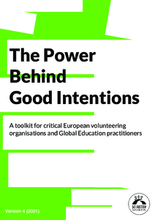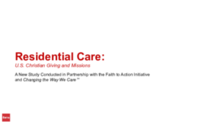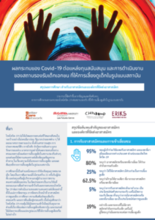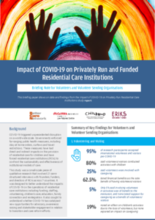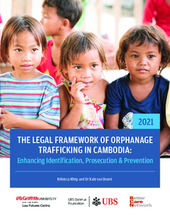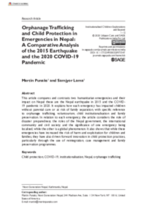Displaying 21 - 30 of 135
This toolkit is the outcome of four seminars organised by the Service Civil International (SCI), and calls for all volunteering organisations in Europe to take a strong stand against racism and colonialism.
This report contains the findings from a nationally representative study conducted by Barna Group of U.S. Christians to better understand U.S. Christian beliefs around and support for orphanages, children’s homes and other forms of residential care for children. It includes data on the amount of funding given to residential care, as well as visits and short-term missions to orphanages.
The goal of the present study was to provide data on pre-trip preparation, in-country activities, and how these impacted volunteer perceptions of preparation and trip satisfaction for volunteers working with vulnerable children, including those in residential care (ex. orphanages).
This paper examines the lived experiences of children who interacted with tourists in a performance-based orphanage in Siem Reap, Cambodia.
เอกสารสรุปนี้ดึงข้อมูลและผลการวิจัยจากรายงาน: ผลกระทบของ COVID-19 ต่อสถาบันการดูแลที่อยู่อาศัยที่ดำเนินการโดยเอกชน: ข้อมูลเชิงลึกและนัยสำหรับการสนับสนุนและการให้ความรู้
This briefing paper draws on data and findings from the report: Impact of COVID-19 on Privately Run Residential Care Institutions: Insights and Implications for Advocacy and Awareness Raising.
Orphanage trafficking occurs at the nexus of criminal law (human trafficking offences) and child protection regulation. This report examines the intersection of these two legal systems for the purpose of developing a strategy to identify and prosecute orphanage trafficking.
This article compares and contrasts two humanitarian emergencies and their impact on Nepal: these are the Nepal earthquake in 2015 and the COVID-19 pandemic in 2020.
This article draws on original empirical data to explore the narratives of young Nepali adults who lived in Kathmandu orphanages as children. Through these narratives, the article explores the diverse complexities of the residents' experiences of volunteer tourism and NGO ‘rescue’, and the shortcomings of recent ‘neoabolitionist’ frameworks.
This presentation - delivered by Marinus van IJzendoorn at a 18 November 2020 meeting of the Evidence for Impact Working Group, a working group of the recently launched Transforming Children's Care Global Collaborative Platform - presents evidence of the harmful impacts of institutionalization on children, demonstrates some of the benefits of deinstitutionalization for getting children back on track, and raises questions about gap-year volunteers working in orphanages.

